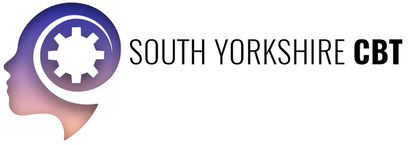WHAT IS OBSESSIVE COMPULSIVE DISORDER?
Obsessive Compulsive Disorder (OCD) is a mental health disorder that affects adults and children from many different back grounds and walks of life. It occurs when a person gets caught in a cycle of obsessions and compulsions. Obsessions are unwanted, intrusive thoughts, images or urges that trigger intensely distressing feelings. Compulsions are behaviours an individual engages in to attempt to reduce the anxiety and distress resulting from the obsessions.
What are obsessions?
Obsessions are intrusive thoughts, images or impulses that occur over and over again. The person may feel that the obsessions are out of control. The thoughts cause the person distress and anxiety and they usually find them disturbing and in contrast to who they feel they are as a person. Obsessions usually result in emotions such disgust, fear and doubt, or a feeling that things have to be done in a way that is “just right.” Most people experience obsessions at some points in their life. Intrusive thoughts therefore are considered ‘normal phenomenon’. For OCD to be present, obsessions will be taking up considerable periods of the persons time and impinge significantly on the activities that the person values.

Intrusive thoughts/ Obsessions and OCD
Unlike ruminations, intrusive thoughts are usually intensely anxiety provoking and distressing for the OCD sufferer. Intrusive thoughts are involuntarily and beyond the persons control. They can involve a number of themes;
Magical Thinking –The OCD sufferer may believe that thinking something is the equivalent of doing it. They may also fear that their thoughts can have a direct influence on whether something will happen or not such as a car crash. It may also lead people to believe thinking about an action will increase the likelihood that they’ll commit that action.
Bodily Sensations (Sensorimotor OCD) – Hyperawareness of specific bodily functions like breathing, blinking, visual distractions, swallowing, or focusing intently on a single part of the body.
Religion – An obsession with religious ritual such as repeating prayers or kissing objects; believing that they have committed
unknown sins and are destined for hell, a fear of defiling a religious location or custom, etc.
Harm – Fears of perpetrating violent or abusive behaviours towards others such as running someone over in the care, pushing someone in front of a train or beating someone.
Symmetry and Order – Being obsessed with having everything “just right.” It could be pictures on a table, books on a shelf, keeping windows smudge-free, etc.
Relationships – Doubting you love your partner or that you have been faithful. Constant need for approval, doubting the faithfulness of a partner, over-analyzing a partner’s actions and feelings, etc.
Sexuality – Fear of being homosexual, sexual thoughts about religious figures, fear of being a peadophille and or being attracted to family members, etc.
INTOLERANCE OF UNCERTAINTY
Everyone is unique and whilst some people are fine with high levels of uncertainty, others may not even be able to tolerate a small amount. Many individuals who have Obsessive Compulsive Disorder struggle to, or are unable to tolerate uncertainty. This means that because we can never predict 100% what is going to happen in our day to day lives, the individual who is unable to manage this uncertainty can become anxious and engage in behaviours that try to reduce the levels of anxiety that this brings for them. This is where intolerance of uncertainty can become problematic as the behaviours that the OCD suffer engages in can be time
consuming and stressful. They are also unlikely to result in allowing the person to feel 100% certain of anything, as this is virtually impossible!!
How does the OCD sufferer try to manage uncertainty?
- Seeking reassurance from others
- List making – to ensure they haven’t missed anything
- Excessive checking
- Refusal to delegate
- Procrastination/avoidance
- Distraction
WHAT ARE COMPULSIONS?
Compulsions are the overt behaviours or covert mental compulsions that individuals use to reduce the anxiety caused by their obsessions. Compulsions can present in a variety of different ways and can include;
- Checking
- Washing
- Ruminations
- Counting and Tapping
- Ordering and arranging
Lets look at each category in a bit more detail……..
Checking
A common and well documented presentation of OCD is “Checking OCD.” Most people will have heard of ‘Checking OCD’ and it is recognised when individuals present with behaviours including locking and unlocking a doors, checking light switched, taps and plug sockets.
Whilst the media often shows these behaviours in a comedy context, for the OCD sufferer the behaviours are very distressing. The OCD sufferer will often have an understanding that these behaviours are irrational but feel unable to stop themselves due to the anxiety that they are experiencing. The checking compulsions that the suffers engages in can often take up hours of time and affect work and relationships.
Washing/Contamination
OCD sufferers with contamination-related compulsion or obsession will typically be found washing themselves, others or their environment to an unhealthy degree.
OCD compulsions can be driven by a major fear of contracting illness through germs that may be clinging to surfaces. As a result it is not unusual for the OCD sufferer to avoid the following;
- Contact with other people
- Public toilets or toilets not in their own homes
- The outdoors
- Restaurants
- Door knobs and handles
- Hospitals
Other less obvious symptoms of checking OCD can include the following compulsions;
- Googling illness symptoms
- Re-reading documents over and over again before sending them to ensure they have not written anything offensive
- Checking information to make sure they don’t miss an important detail
- Asking for reassurance from loved ones that they aren’t offended by something the OCD sufferer has said.
- Obsessively checking the safety of loved ones numerous times per day
RUMINATION
What is rumination in OCD?
Rumination is the activity of going over and over something in ones head. It is a prolonged way of thinking . It is usually about a question or particular theme and is unproductive. The act of rumination is not in itself distressing and is classed as a compulsion that the OCD sufferer engages in to reduce anxiety and distress associated with a compulsion. An example of OCD with a rumination compulsion might be in relation to a sexual or harm obsession. The OCD sufferer might believe that the intrusive thought regarding hurting their child means that they are a bad person or hold latent values that support child abuse. In order to manage the anxiety associated with this obsession, they will engage in rumination which will have them recall a recent time when they have had contact with a child. The rumination may involve them breaking down the memory of the event searching for evidence that they wanted to cause harm to that child. Rumination is unproductive and rarely allows the person to reach a conclusion.
Counting and Tapping
Compulsions can involve counting and tapping certain numbers of times or until it ‘feels just right’.
Ordering and Arranging
This compulsion can involve arranging things in certain ways. For example people may have to line up books or CD’s in colour or date arrangement. Pictures should be symetrical and items must face a certain way.
Mental Rituals
Not all compulsions can be seen and some individuals with OCD perform rituals/compulsions in their heads. Mental compulsions can include, saying prayers, trying to replace a bad image with a good images, or labelling thoughts as OCD. Mental rituals are sometimes performed over and over again until it feels ‘just right’.
TREATMENT FOR OCD
OCD is unlikely to get better on its own. The NICE Guidelines support the use of CBT for the treatment of OCD.
What will treatment involve?
The treatment for OCD will involve a detailed assessment and administration of appropriate measures (YBOCS). Your therapist at SouthYorkshireCBT will then help you begin to understand your OCD and how your behaviours feed into the maintenance of the issue. It is likely that you will be asked to record your obsessions and examine the triggers and emotions that accompany them. The therapist will also need to develop an understanding of the compulsions you engage in to reduce the distress and anxiety associated with the obsessions. Effective treatment for OCD will always include Exposure and Response Prevention (ERP) where you are encouraged to face the very thing that makes you feel anxious and the need to undertake compulsive behaviours.
Related Problems
Some people with OCD may develop other mental health problems such as;
Depression
An illness that typically causes low mood, lack of motivation and negative thoughts regarding ones self, other and the world. Individuals with
depression can feel hopeless and in extreme cases experience suicidal thoughts.
Generalised Anxiety Disorder – GAD causes an individual to feel anxious and worried about a range of different situations and issues.


